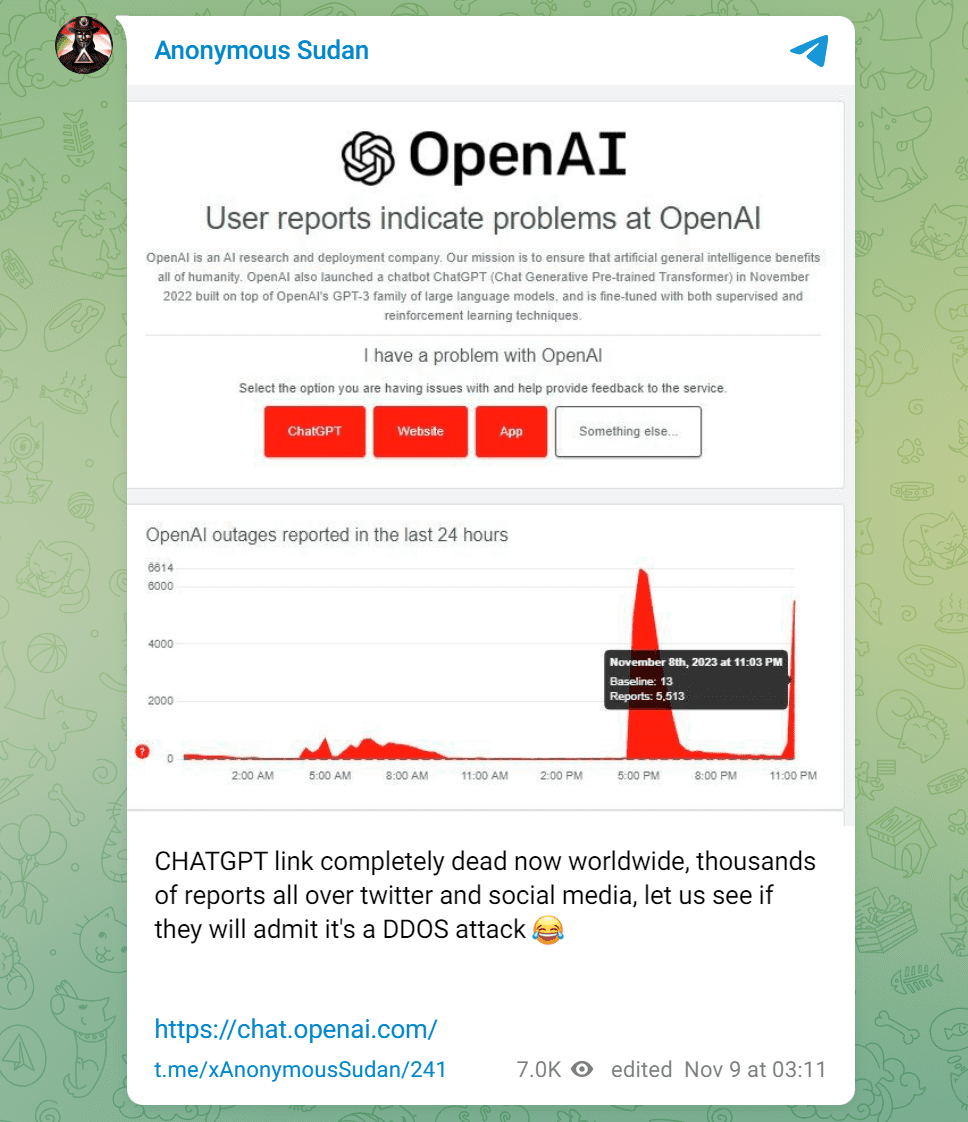
This week, OpenAI experienced several outages that disrupted the normal functioning of the OpenAI API and ChatGPT services. These interruptions primarily occurred due to cyberattacks launched by a group identified as the Anonymous Sudan. This group, a nationalistic hacking collective, predominantly engages in DDoS attacks often motivated by political objectives.
“We are dealing with periodic outages due to an abnormal traffic pattern reflective of a DDoS attack. We are continuing work to mitigate this,” OpenAI said in an update
For instance, their previous assault on Microsoft 365 resulted in sporadic service disruptions over a week, an act the group claimed as a protest against American interference in Sudanese affairs. The recent attacks on OpenAI bear resemblance, considering OpenAI’s association with Microsoft.

As per statements by Anonymous Sudan, the group intends to continue its offensive against OpenAI, which could affect the steadiness of both the OpenAI API and ChatGPT services. Given their history of attacks, while it may not be feasible to cause continuous paralysis of OpenAI’s services, initiating sporadic attacks that destabilize service is within the realm of possibility.
In contrast to Microsoft’s initial reticence to acknowledge the attacks on Microsoft 365, OpenAI has been forthright about the DDoS attacks in their status updates.
Microsoft’s reluctance to disclose the attacks likely stems from a concern that doing so might embolden the attackers. Ultimately, Microsoft did concede that they had suffered a DDoS attack.
OpenAI utilizes CDN and security services provided by Cloudflare. However, for hacker collectives like Anonymous Sudan, the use of Cloudflare does not preclude the possibility of incapacitating target servers.